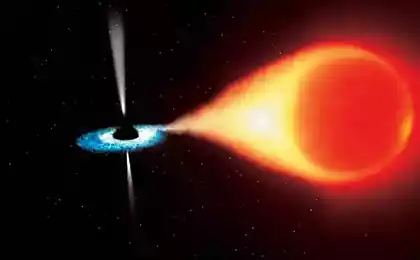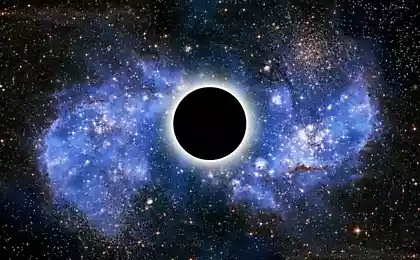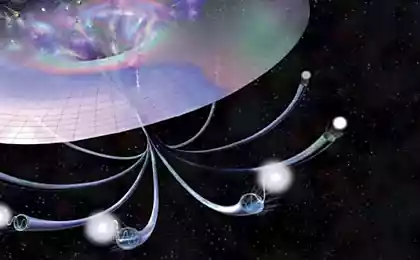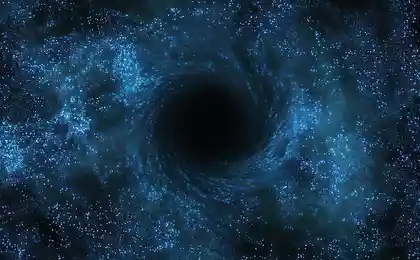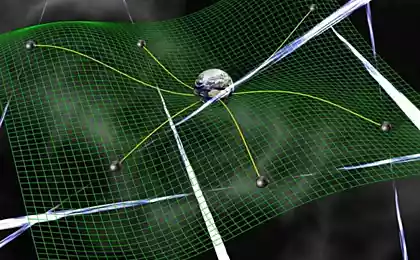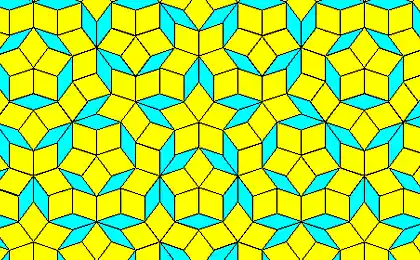634
Five-dimensional black holes can destroy the general theory of relativity

Simulating the COSMOS supercomputer, drawn theoretical physicists from the University of Cambridge and the London Queen Mary, showed that black holes are formed in the universe, with more than four dimensions, should decay into naked singularity. However, this property will be subject to only a particular form of black holes.
Naked Singularity - a point of infinite density, near which the general theory of relativity becomes insolvent, ie, loses predictive ability
. English physicist Roger Penrose formulated a "principle of cosmic censorship," which states that "nature abhors a naked singularity." Subsequently physics expressed and other hypotheses: Stephen Hawking said that singularity, if they exist, must necessarily be hidden from the observer - such as the horizon of the black hole. This principle has been called "a weak form of cosmic censorship»
. In our four-dimensional space-time, black holes have a spherical shape (as well as possibly can be formed objects in the form of a ring with zero thickness, but non-zero radius, called "ring-shaped singularity" or "singularity Kerr»).
In general relativity makes no claims about the number of existing measurement, physics theory periodically subjected to checks in the spaces with a large number of measurements, for example, to verify the existence of these cosmic censorship. In 2002, physicists and Emparan Reall calculated that in a space of more than four dimensions there may be non-spherical black holes - such as black rings.

Studies of the behavior of such rings and engaged British theoretical physics. Simulation on a supercomputer showed that these rings are unstable. Most often, they collapse into an ordinary spherical black hole, but very thin ring can be converted into a kind of beads, which are separated by thickening more and more subtle strings. The whole structure eventually breaks down and leads to the formation of naked singularities.
"As long as the singularity is hidden behind the event horizon, it does not bother anyone, and general relativity holds. The principle of cosmic censorship shows that this always happens - explains co-author [Markus Kunesch], a student from Cambridge. - As long as the principle is correct, we have successfully predict the future near black holes. For physics, in fact, trying to predict the future on the basis of existing knowledge about the current state
the universe. " "The existence of naked singularities of general relativity breaks all - explains co-author, Sarah Tanyasavanekul [Saran Tunyasuvunakool], another student. - If general relativity breaks down, everything gets turned on its head, since she lost the predictive ability. And then it can no longer be used as an independent theory to explain the universe. »
COSMOS supercomputer is located in Cambridge, and has a processing capacity of 38.6 TFLOPS, and systems based on SGI UV2000 1856 Intel Xeon E5-2600 cores, 14.8 TB RAM and 31 th co-processor Intel® Xeon PhiTM.
Source: geektimes.ru/post/271540/

